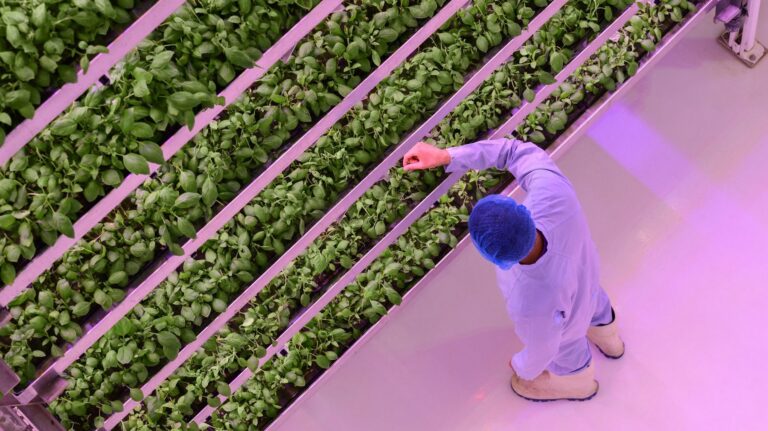
Demands from governments and consumers for organisations to adopt a more sustainable approach to business are driving innovation in this area. This is also driving record levels of investment in climate tech – and BlackRock’s CEO Larry Fink predicts the next US$1,000 billion unicorns will come from the climate tech sector.
The Bain Innovation Exchange (BIE) has drawn on research with corporate clients, start-ups and with venture capitalists to examine innovations that could impact the sustainability of seven industries: advanced manufacturing services (AMS), automotive, retail, banking, energy, healthcare, and consumer products.
3D printing explores and accelerates larger, more complex AMS projects
The construction sector accounts for 37% of energy-related CO2 emissions, according to data from the International Energy Agency. Advances in 3D printing in new materials, including cement and metals, and on a much larger scale, can reduce natural resource use and waste, while increasing efficiency. Construction 3D printing also allows faster and more accurate construction of complex or bespoke items.
With value chain volatility, efficiency in retail is fundamental, and AI can help monitor and reduce scope 3 emissions
An incredible 95% of retail emissions are scope 3 indirect emissions in their supply chain. While scope 1 covers the direct emissions from sources owned by a company, and scope 2 focuses on the emissions from the electricity and heating or cooling sources they buy, scope 3 is particularly complex to manage since it involves a supplier ecosystem often beyond the retailer’s control. Technologies including AI can help monitor the system’s carbon footprint, offering visibility and helping reducing emissions.
Banks continue to create new forms of sustainable value, including greener, impact-driven products and services
While banks have a relatively small direct environmental footprint, their activities (including lending) influence how companies and consumers act, invest, and address their own footprints. With consumers, the appetite for green products is growing quickly, and the huge costs of a global green transition also bring financing opportunities for lenders.
Investing beyond carbon is now fundamental for transformation by energy companies
According to World Resources Institute’s ClimateWatch, more than 70% of “human-made” greenhouse gas emissions come from energy sources. Government interventions, incentives, and subsidies, coupled with changing customer, investor, and employee expectations, have energy companies reinventing and diversifying.
The complex healthcare industry is addressing the need to foster the circular economy
To date, 75% of all plastic ever produced has become waste, and a substantial portion of plastic waste comes from healthcare. Recently the World Health Organization estimated that the critical products needed during the pandemic have included 87,000 metric tons of personal protective equipment and 144,000 metric tons of syringes, needles, and other vaccine waste, as well as the chemical and plastic waste from more than 140 million test kits.
The challenge is to reduce waste without compromising care. A systemic change toward a circular economy might include medical devices that are designed for reuse and kept in circulation. What must be thrown away should be biodegradable.
Food consumption and production habits are at the heart of ESG growth
The global food system feeds almost 8 billion people and generates a third of global GDP. However, it also creates a quarter of all greenhouse gas emissions. New approaches, including vertical farming and lab-grown meat, can reduce the amount of water and land required to produce the same or greater amounts of food. This is especially important with population booming and food security concerns increasing.
Switching to vertical farming and lab-grown meat also requires less energy, transport, chemicals, and vastly reduces emissions.
The automotive industry is embracing air mobility helped by new regulations
Cities consume around 80% of the world’s energy supply and, according to the US Department of Energy, highway vehicles release about 1.6 billion tons of greenhouse gases into the atmosphere each year. Urban air mobility (UAM), transporting both goods and people and powered by drones, could decongest cities, reduce noise pollution, and help to decarbonise the energy sector. The European Union Aviation Safety Agency has begun creating its UAM regulatory framework, building on the results of a 2021 UAM study on societal acceptance. They predict it could become a reality in Europe within three to five years.
The pace of sustainability innovation demands a multidimensional approach
Sustainability is a complex and evolving topic that needs constant evaluation, especially as the pace of innovation increases. It is important to conduct a risk assessment to find the most appropriate, balanced solutions across any value chain.
ESG inclusion is becoming fundamental, and tracking the complex ecosystem’s development is essential. Therefore, it is important to continue to explore a multidimensional approach.